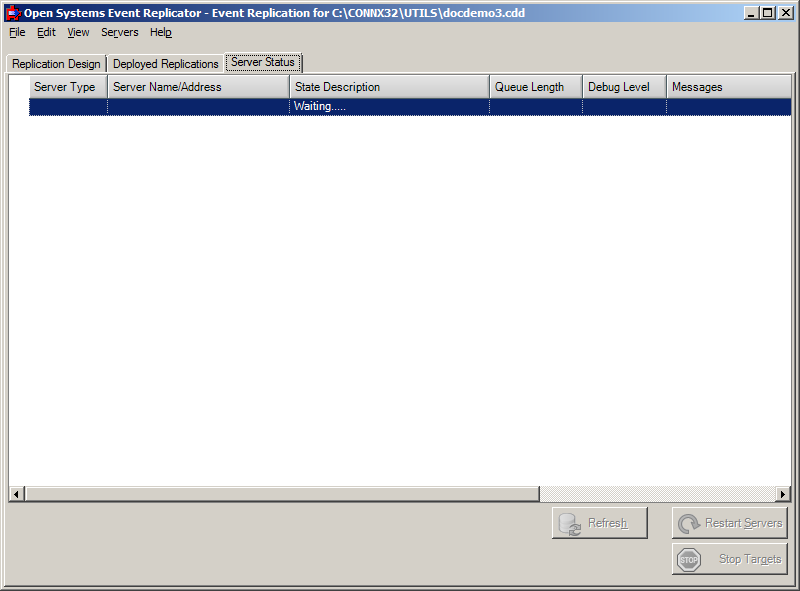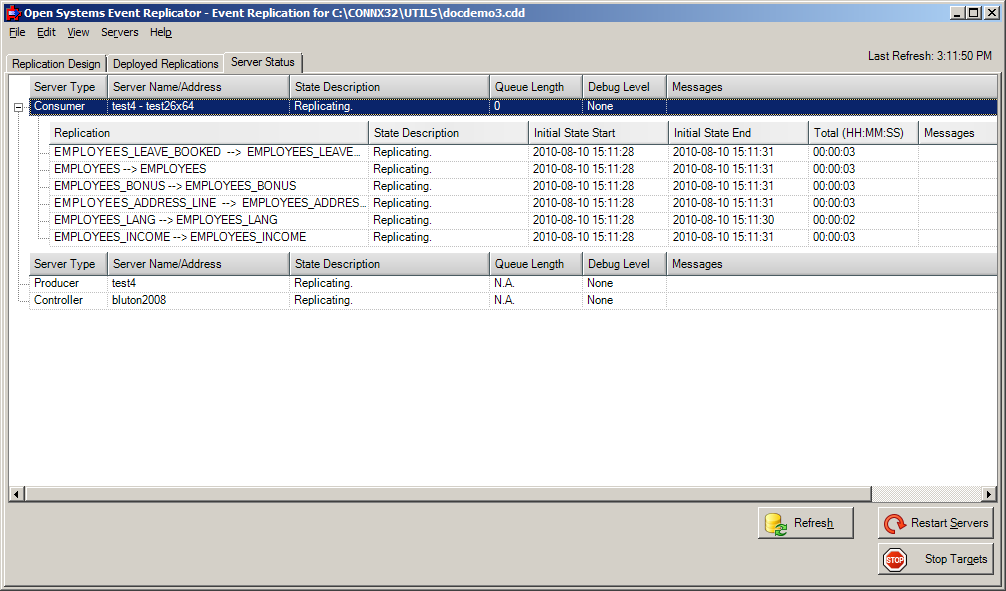|
Viewing server status includes:
View the server status if:
After you view the server status you will be able to:
|
You may want to view the server status if you receive an error message about a server.
Click the Server Status tab. The following appears:

When the server information has been retrieved, the following displays:

This grid contains the status for all the Replication components. The columns and their meaning are as follows:
Server Type
Server Name/Address
This is the name of the server that the corresponding component
is installed on.
State Description
This tells the current state of the component or replication.
Potential values and their meaning are as follows:
Queue Length
This indicates the number of elements in the queue. In
normal operation, this number will grow and shrink depending on
load. A rapid increase in this number that never goes down
is an indication that the target database is offline and transactions
are queuing but not being processed on the target.
Debug Level
This indicates the debug level of each component
Messages
If there are any error messages associated with this
component, they will be displayed here. Hint:
Double click on this field to display the entire message
in an edit box for easier reading.
The server status information will automatically refresh every 30 seconds. To manually refresh the server status, click the Refresh button.
The Time field in the upper right corner will contain the latest refresh time.
You can also adjust the display column width.
For more information about server status and a full description of the potential State Description values, see Server Status Tab.